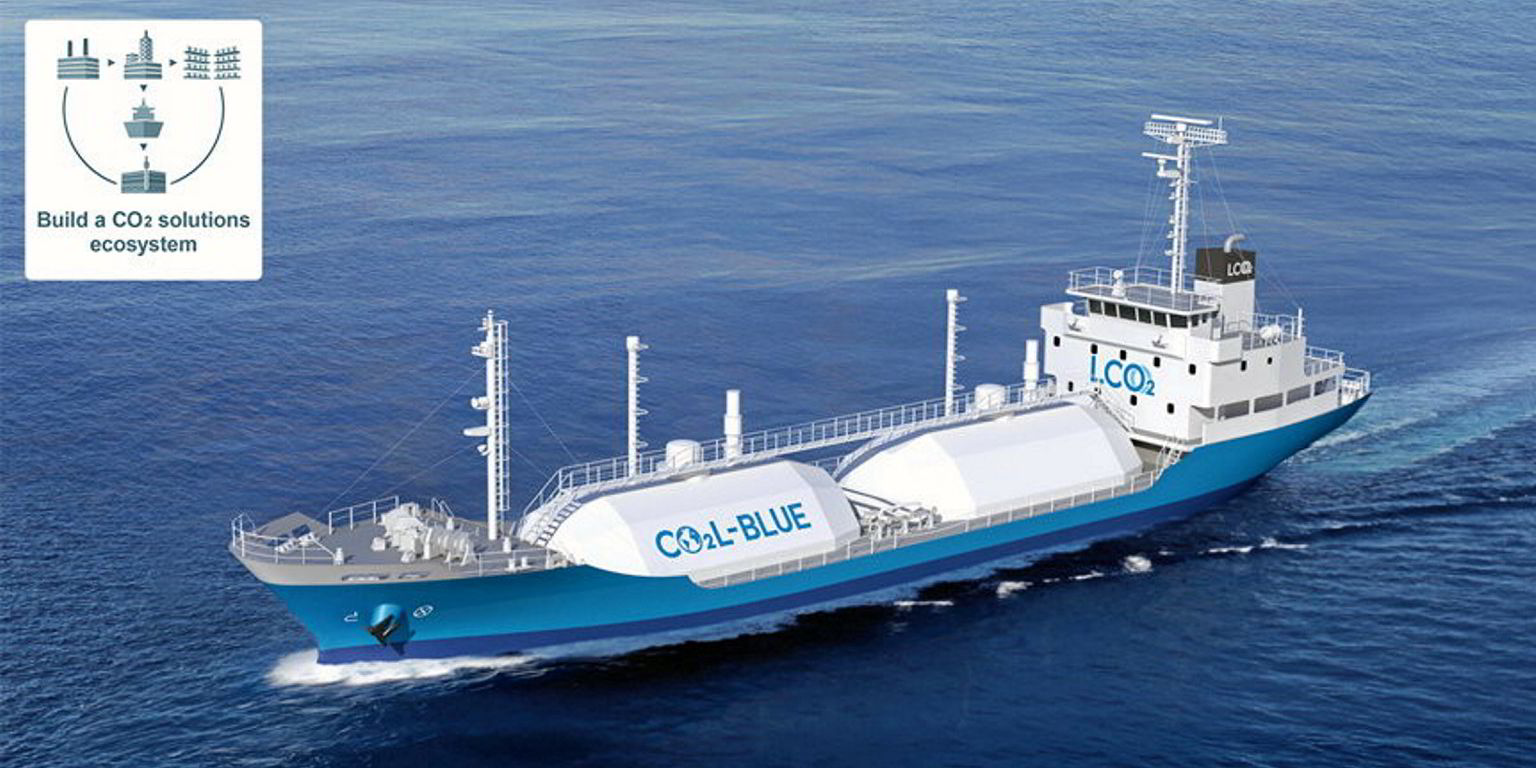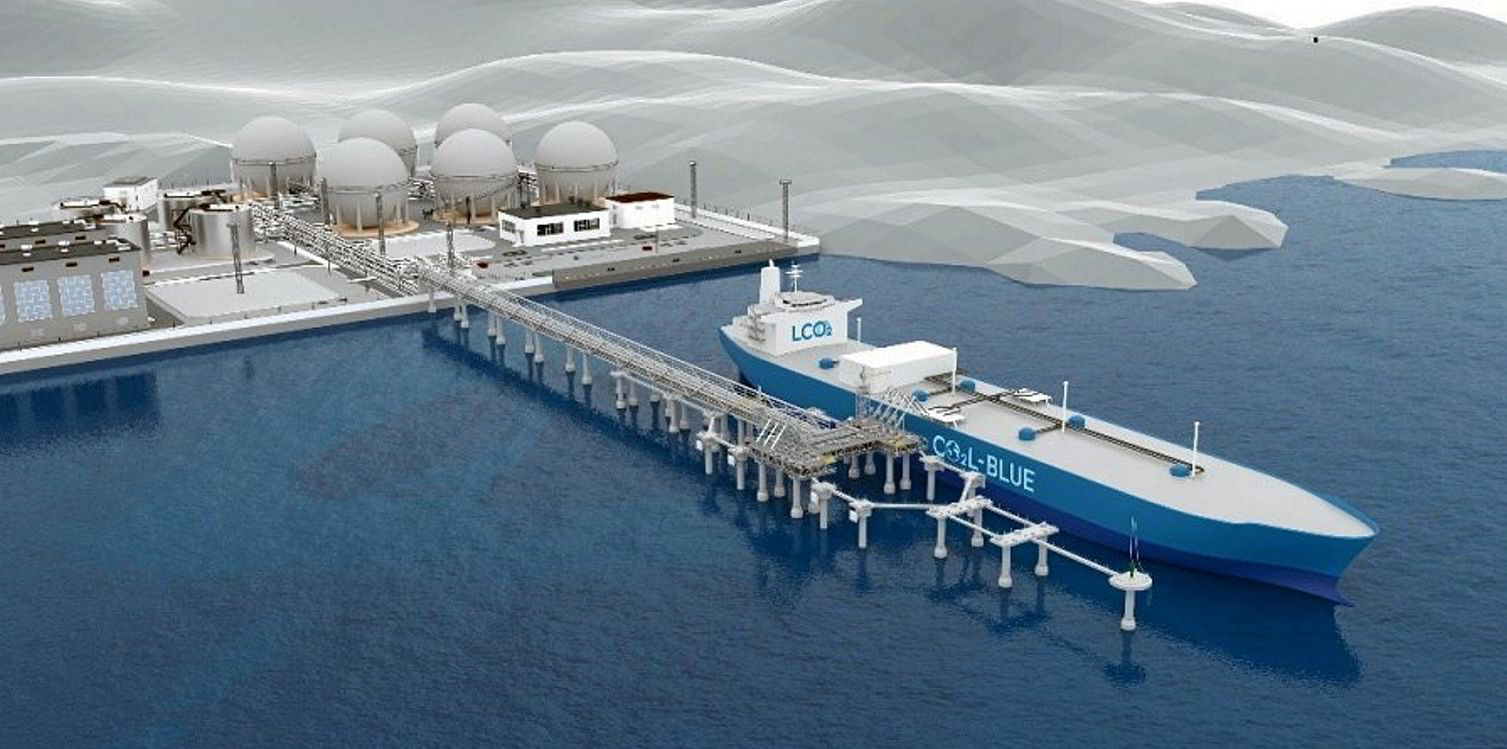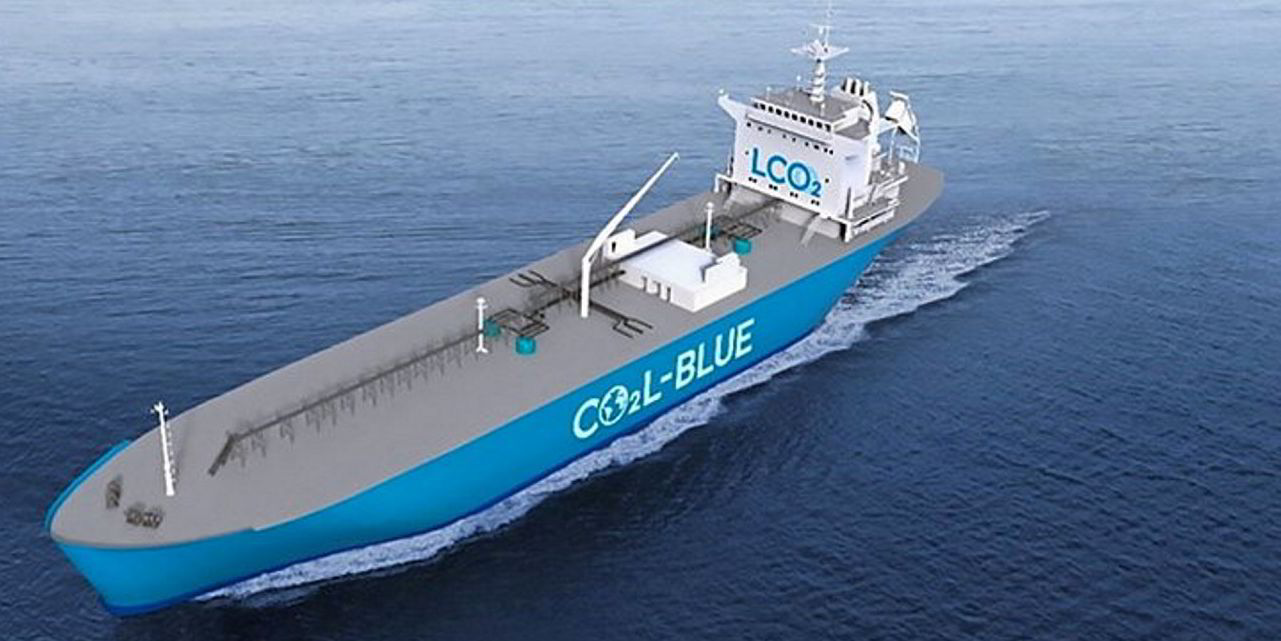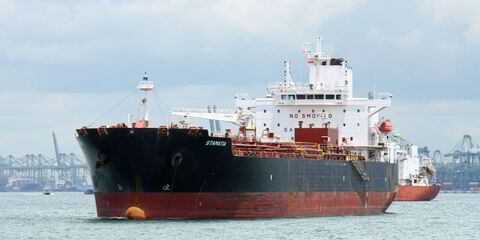Mitsubishi Shipbuilding is to build what has been described as a liquefied CO2 (LCO2) carrier as part of a wider Japanese initiative to develop high-volume CO2 transport.
The vessel is being built in conjunction with Japan’s New Energy and Industrial Technology Development Organization’s research into carbon capture, utilisation and storage (CCUS).
The ship will be constructed at the Enoura Plant of Mitsubishi Shipbuilding’s Shimonoseki Shipyard & Machinery Works, with delivery scheduled for the second half of 2023.
LCO2 carriers transport liquefied CO2 gas in a low-temperature, high-pressure state.
Coastal shipowner Sanyu Kisen ordered the vessel, which will be bareboat chartered by the Engineering Advancement Association of Japan to carry out research and development and demonstration tests for establishing LCO2 ship transportation technology.
Other participants include K Line Nippon Gas Line and Ochanomizu University.
“Although ships to carry LCO2 used in the food industry have previously been constructed and operated in Europe and Japan, the ship to be newly constructed is expected to be the world’s first LCO2 carrier intended specifically for CCUS,” Mitsubishi Shipbuilding said.
The shipbuilder will be responsible for all aspects from the ship design throughout construction, including the cargo containment system, applying its gas handling technologies and expertise cultivated through the construction of liquefied gas carriers.
LCO2 carriers are pivotal in transporting CO2 from the emission sources to storage sites or facilities for utilisation, and demand for these vessels is expected to increase in the future, according to Mitsubishi Shipbuilding.
“Through the experience to be gained by constructing the world’s first LCO2 carrier built specifically for CCUS, MHI Group will strengthen its current strategic business focused on the energy transition,” the company added.
Mitsubishi Shipbuilding recently received approval in principle for an LCO2 carrier cargo tank system design from French classification society Bureau Veritas.
In August 2021, the shipbuilder announced it had teamed up with TotalEnergies on a feasibility study into the development of an LCO2 carrier.
Mitsubishi Shipbuilding has also just announced it is establishing a new marine decarbonisation business development group in response to the shipping industry’s transition towards carbon neutrality.
The new organisation will bring together a range of functions, from technology development and market research to the formulation and implementation of business strategies.





